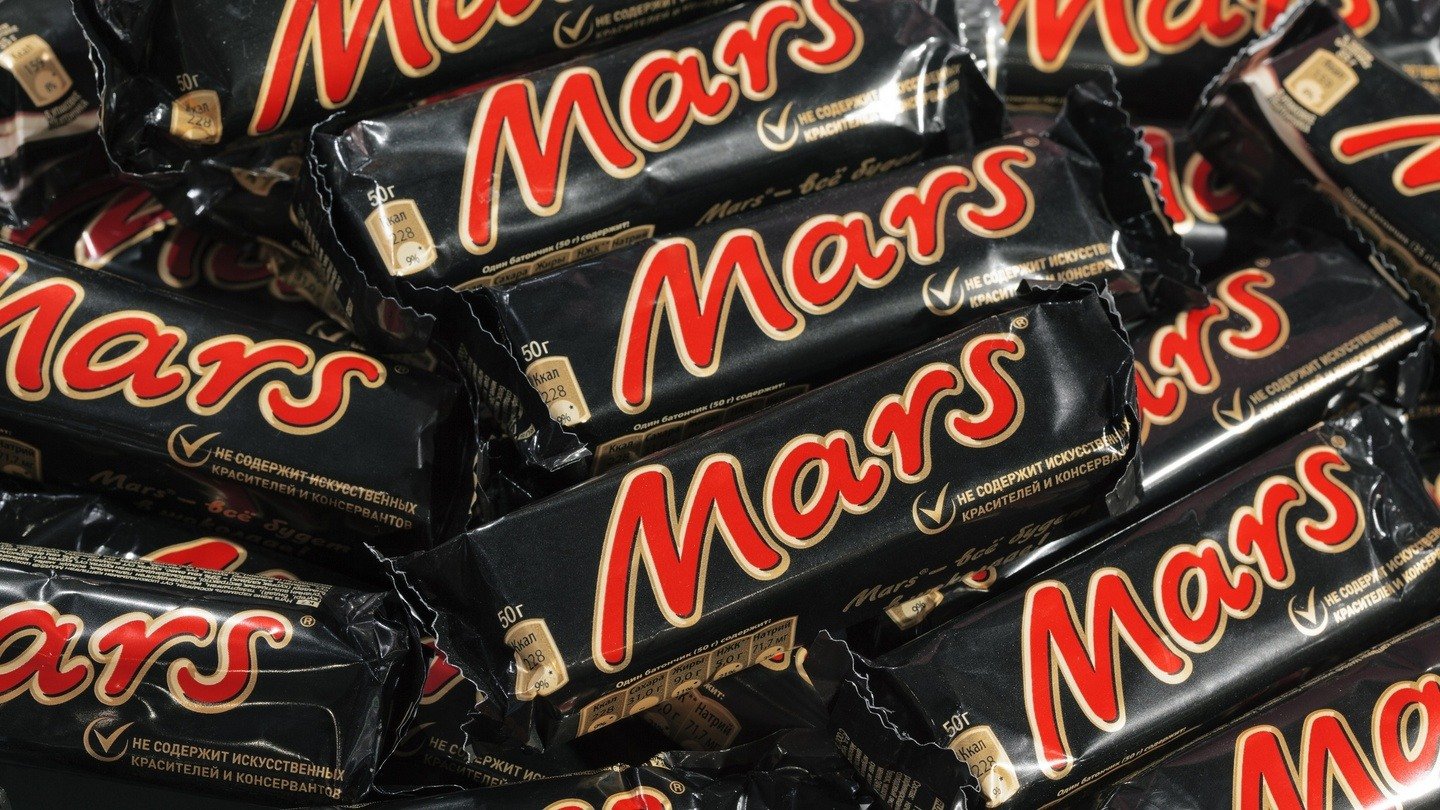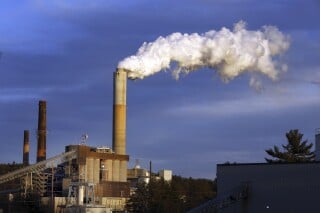
Mars cuts emissions by 16% while growing business by 60%
What's going on in the world of ESG, CSRD, CSDDD, SDGs etc...
1. BRAZILIAN RANCHER TO PAY MAJOR FINE FOR DAMAGE TO AMAZON
In a massive victory for climate justice a Brazilian cattle rancher has been ordered to pay over $50 million for illegal deforestation of the Amazon and ordered to restore the precious carbon sink.
A federal court in Brazil froze the assets of Dirceu Kruger to pay compensation for the damage he had caused to the climate through illegal deforestation in the largest ever civil case brought for climate crimes in Brazil.
Kruger had used chainsaws to clear a path, then set fires to clear the land and planted grass to establish pasture for raising cattle.
41% of tropical deforestation is due to cattle grazing (driven by consumption of meat) and an additional 7% is due to soya, mainly for animal feed.
2. ALMOST QUARTER OF US CONGRESS ARE CLIMATE DENIERS
We can’t think of anything that will Impact the planet more from a climate crisis perspective than the outcome of the US election.
US politics is a bastion of climate denial with nearly one in four members of Congress dismissing the reality of climate change, even as alarm has grown among the American public over dangerous global heating.
A total of 123 elected federal representatives – 100 in the House and 23 in the Senate – deny the existence of human-caused climate change, all of them Republicans.
Though the portion of lawmakers who deny the climate crisis is stunning, it has been declining. Still, many elected officials who don’t deny the crisis still use anti-climate rhetoric and work to thwart GHG curbing policies to support the fossil fuel industry.
Reference: https://www.theguardian.com/us-news/article/2024/aug/05/climate-change-denial-congress
3. NISSAN IS TESTING NEW PAINT TO KEEP CARS COOLER ON HOT DAYS
Nissan is testing a new car paint that it says reflects the sun’s near-infrared rays and redirects energy back into the atmosphere, thus keeping vehicles cooler on hot days.
It’s been trialing the paint on a Nissan NV100 service vehicle as it drives around on the scorching tarmac at Tokyo Air Terminal. E
The paint seems capable of reducing the car’s internal temp by about 10 degrees (F) and exterior surface temp by about 21F.
“A cooler cabin is not only more pleasant to enter, but also requires less air-conditioning run-time to cool the cabin, “This helps reduce load to the engine, or in the case of an electric vehicle, draw on the battery. In both powertrains, an improvement in efficiency is expected, as well as occupant comfort.”
Reference: https://europe.nissannews.com/en-GB/releases/nissan-trialing-cool-paint-technology
4. KAMALA HARRIS’S VP PICK WALZ BOOSTS CLIMATE CREDENTIALS
Kamala Harris picked Minnesota Governor Tim Walz to be her running mate. Walz had the most impressive clean energy and environmental record of all candidates.
In 2019, Walz set a 2050 goal for MN to get its electricity from 100% carbon-free sources. In 2023, he accelerated the timeline to 2040.
Walz secured a $2B package that included grid improvements, solar panels on state-owned buildings, an EV rebate program, heat pump grants and rebates, and a green bank.
He signed a transportation bill to overhaul transit, improve infrastructure, expand rail service, and offer electric bike credits.
Earlier this year, Walz announced a $200m grant to reduce food-related pollution.
Seems like a good add.
Reference: https://heatmap.news/politics/walz-harris-vp
5. MARS CUTS EMISSIONS BY 16% WHILE GROWING BUSINESS BY 60%
Mars — the private company behind Ben’s rice, Pedigree pet food and M&M’s confections — reduced its GHG emissions by 8% in 2023, largely through initiatives that address how key ingredients including soy, cocoa, beef, palm oil and rice are grown.
Since 2025, according to its 2023 Sustainable in Generation Report, Mars has cumulatively cut its carbon footprint by 16%, or 5.7m MT, while growing business 60% to $50B+.
Mars says ~96% of its total footprint in 2023, or 29.2m MT, came from suppliers; approx 60% was related to agricultural ingredients.
The company has also pledged to eliminate deforestation in its supply chains by 2025, a goal its lead sustainability executive says is closely linked to emissions reductions.
Reference: https://trellis.net/article/how-candymaker-mars-cut-emissions-16-and-still-grew-its-business-by-60
6. FISH HOTELS AMONG IDEAS FOR NATURE FRIENDLY WIND FARMS
Measures such as ‘fish hotels’ and artificial reefs should be incorporated into the design of offshore wind farms to provide marine life with habitats for shelter, feeding and spawning.
That’s according to a report released by the Scottish Offshore Wind Energy Council. It highlighted many promising “nature-inclusive” measures to undergo further trials.
- Fish hotels/cages either incorporated into or attached to turbine foundations
- Adaptations to the rock protection used to prevent scouring around turbine foundations
- ‘Reef-type’ structures and concrete blocks
- Mattresses for cable protection
- ‘Water holes’ to allow marine life to enter and exit the interior of foundations.
Reference: https://www.edie.net/fish-hotels-among-suggestions-for-nature-inclusive-offshore-wind-farms
7. BAKED ALASKA: GLACIAL DAM BURSTS, FLOODS ALASKA’S CAPITAL
More than 100 homes in Alaska's capital Juneau have been damaged by a glacial dam outburst north of the city.
The flooding began when water spilled out from the glacial lake at Suicide Basin, which is usually dammed by the Mendenhall Glacier. If enough water fills the basin, it can burst through or overtop the ice damming it in as the glacier melts.
Alaska is suffering from an overwhelming heatwave. Deadhorse, located near the coast of the Arctic Ocean, skyrocketed to a record 85 degrees (F), the warmest ever recorded.
The heat wave follows a freakishly warm start to the year in Alaska. It was the warmest winter, spring and first six months of the year there, according to NOAA.
Reference: https://eu.usatoday.com/story/weather/2016/07/14/alaska-heat-records/87086826/
8. CANCER KNICKERS: WOMENS’ UNDERWEAR FULL OF CARCINOGENS
South Korean officials have reported that women’s underwear sold on the SHEIN app contained cancer-causing agents at levels three times higher than the legal limit.
The revelation was part of a safety review where tests were carried out on 330 products available on Chinese online retail platforms, including SHEIN as well as Temu.
These findings follow previous examinations into SHEIN children's clothing in June which found toxic substances at levels hundreds of times above permitted limits.
In some cases, phthalate levels in children's shoes were 428 times the allowed limit.
What we struggle with is the fact that there is a legal limit of carcinogens in any clothing item. Maybe we're being naïve.
Reference: https://apparelinsider.com/carcinogens-at-3x-legal-limit-found-in-womens-underwear-on-shein-app/
9. EUROPEAN COMMISSION PUBLISHES FAQs ON CSRD IMPLEMENTATION
The EC published an FAQs document on implementation of CSRD. Some of the FAQs also address provisions of the ESRS, for which legal interpretation from the EC was deemed necessary. The FAQs cover:
- Sustainability reporting requirements introduced by CSRD
- CSRD Assurance of sustainability reporting
- Key intangible resources
- Requirements for third-country entities
- Sustainable Finance Disclosure Regulation (SFDR)
The FAQs are intended to facilitate the compliance of stakeholders with the requirements in a cost-effective way and to ensure the usability and comparability of the reported information on sustainability.
10. US DEMOCRATS SEEK SCOPE 3 GUIDANCE ACT FROM EPA
Under the heading of ‘a good acronym is half the battle’ US democrats have introduced the Standardized Calculation of Operational Polluting Emissions (SCOPE) Act to require the Environmental Protection Agency (EPA) to issue voluntary guidance on Scope 3.
Under the SCOPE Act, the EPA would be obliged to issue guidelines within 12 months. This guidance would cover calculation methodologies, quality assurance, record keeping and data management.
In addition, the EPA would set thresholds on Scope 3 emissions, establishing which companies are recommended to report this information to the Agency.
The legislation has been publicly endorsed by a broad scope of environmental groups.


